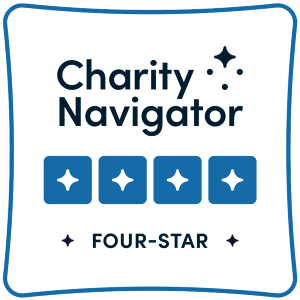First Responders Children’s Foundation Resiliency Program
We help them cope with stress, manage their fears and build mental resilience.
Mental And Behavioral Health Support For Children Of First Responders
For over 20 years, our foundation has focused on the unique needs of the children of first responders. More than ever, these children carry a heavy burden knowing the daily dangers their parents face. In times of crisis, these burdens weigh even heavier and can impact a child significantly—particularly for those that lose a parent. Our children are our future.
Our program provides free confidential mental health counseling and wellness resources to children of first responders.
Children of first responders live each day with the fear that their parent may not return home. What’s more, they are exposed to stories of loss, illness and danger. These burdens weigh heavy on children and can impact them significantly—particularly for those who lose a parent in the line of duty. And with an existing mental health crisis among US children overall, stress, anxiety, and depression is only magnified for those with first responder parents.
Details
FRCF helps families manage these ever-present stressors by providing free counseling from licensed mental health professionals who specialize in treating children of first responders. The confidential nature of these services helps children feel more comfortable sharing concerns and asking for help. Counselors are available in a growing number of states across the country (currently in Hawaii, New York, New Jersey, California, Texas, Oklahoma, Tennessee and Florida). The program also provides access to an ever-expanding roster of wellness resources that support a child’s overall mental health and resilience.
“I know when my father leaves for his shift, there’s always a chance I may never see him again.”
Delaiah, daughter of a police officer
Who We Serve
Our Mental Health Resiliency Program protects and strengthens the mental resiliency of the children of police, fire, sheriff, EMS, and 911 dispatchers.
The Vision Is Simple
Free, confidential, professional, trauma-informed counseling services for the children of first responders. All therapy services for children and family members are:
- Confidential and anonymous
- Culturally competent
- At no cost to first responder families
- Provided by licensed mental health professionals
- Accessible both virtually and in-person
We Can Help
First Responders Children’s Foundation can help if your child is experiencing any of the following: Fear, anxiety, isolation, depression, nightmares, undeserved shame, victim of Bullying, public humiliation or self-harm ideation.
Available in Eight States
The program is available to first responder families in Hawaii, California, Oklahoma, Florida, New York, New Jersey, Tennessee and Texas. The program has been developed to scale into more states.
First Responders Children’s Foundation does not provide a suicide hotline. If anyone in your family is experiencing suicidal thoughts or an emergency please call your local emergency number 9-1-1. Or reach out to the National Suicide Prevention Lifeline: 1-800-273-8255 or suicidepreventionlifeline.org.
Frequently Asked Questions
The program is free to all children of first responders and their immediate family members. We identify first responders as police, fire, sheriff, EMS, and 911 dispatchers.
Who is eligible for this program?
The Mental Health Resiliency Program is available to children of first responders 25 and younger. In some cases, the parent may be seen as part of a family session, but this, as well as minimum and maximum ages, vary by provider and state. Please note if the child of the first responder is 18 or older they must complete their own referral form.
The program is available in eight states including Hawaii, California, Florida, Oklahoma, New York, New Jersey, Tennessee and Texas with more states launching in the coming months.
Our mental health provider partner in your state will contact you within 72 business hours of FRCF receiving your referral form. They may try and contact you by email, phone call, and/or text message. At that point, you will complete intake with the provider and they will help you schedule your first appointment based on availability.
What should I do if I’m not contacted within 72 hours?
Please check your spam inbox and the phone number you provided. It’s possible you may not recognize the phone number or email of the provider, as it will not be First Responders Children’s Foundation trying to contact you. If you confirm that our provider partner has not reached out, please contact natalie@1strcf.org or call 201-580-6625.
Is this confidential?
All information you provide through this HIPAA-secure referral form is 100% confidential and will only be shared with First Responders Children’s Foundation and our culturally-competent counseling partners in order to match you with a provider.
All counseling services are completely confidential unless the law requires divulgence. Agencies will NOT be notified unless the first responder requests it. Counseling sessions remain confidential between client and the mental health professional.
Are the appointments in person or virtual?
The program provides virtual appointments. However, in some locations in person appointments may be available.
The high levels of stress that first responders experience daily on the job can easily carry over to their spouses and children. Children of first responders may fear for the parents’ safety, worrying about if they will come home at night or if they have been hurt on the job. First responders work long shifts or may be called away suddenly for work and miss important dates like holidays or special accomplishments. Children may feel resentment or disconnected from their parent. Additionally, children can experience secondary or vicarious trauma and exhibit symptoms of post-traumatic stress. With this information in mind, culturally competent counseling is an extremely effective course of action not only for the first responder, but for the children as well.
- Excessive worry or fear of something bad happening
- Feeling easily startled or “on guard” all the time
- Nightmares or recurrent thoughts about traumatic situations
When Secondary Trauma affects children, it is difficult for them to ask for help. A child may exhibit subversive behavior, emotional outbursts, or act out in other ways. All of these expressions may be their way of showing their need for support in some of the following areas:
- Fear
- Anxiety
- Isolation
- Depression
- Nightmares
- Undeserved Shame
- Victim of Bullying
- Public Humiliation
- Self-harm ideation
- Suicidal thoughts
How do you select counselors?
Counselors have specific training, are hand-picked to deal specifically with children and first responder families. All counselors are vetted through background checks, reference checks, license verification, annual certification, thorough interviewing with clinical team, management team, and first responder team. There is also ongoing oversight and communication through the programs clinical director including quarterly clinician meetings and consistent cross communication between counselors and clinical director.
What if my child’s counselor is not the right fit?
From time to time our counselors might not be the best fit for the client they are serving. This happens for a variety of reasons, sometimes personalities are not cohesive. Should this situation occur, we are able to assist in seamlessly assigning a new counselor to your case.
FRCF services are funded through the generosity of the donations, foundations, corporate sponsorships, and other grant support.






